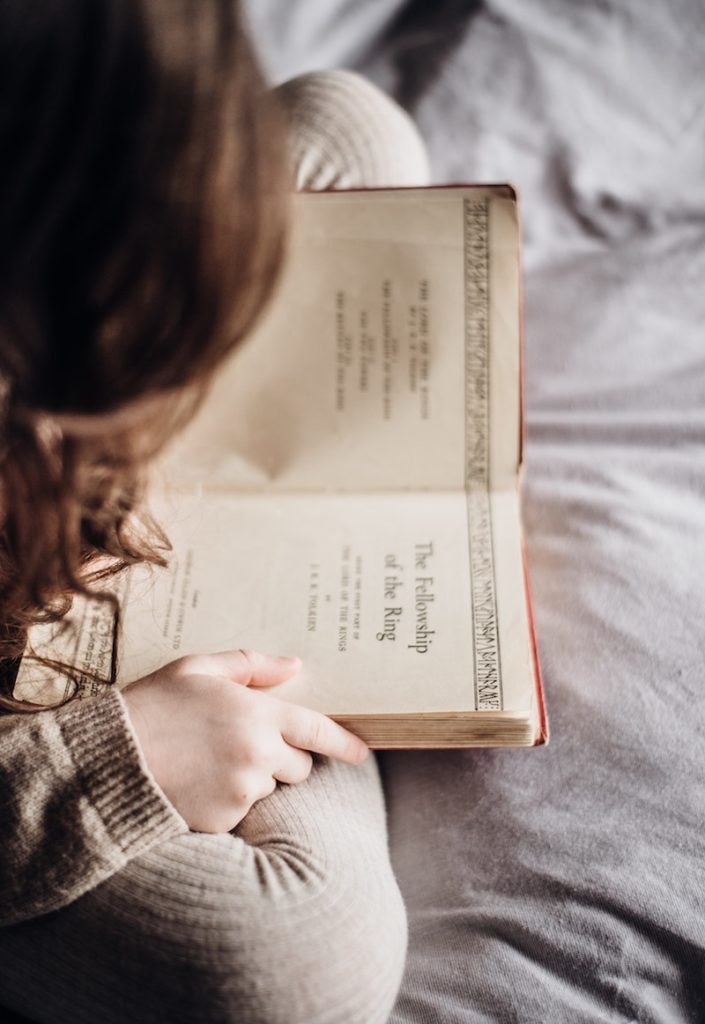 In homes across the world, parents are grappling with suddenly having charge of their children’s formal education. These families have been forced into accidental homeschooling. Our ancestors would have laughed at our anxiety, since education for most of human history was primarily in a parent’s hand.
In homes across the world, parents are grappling with suddenly having charge of their children’s formal education. These families have been forced into accidental homeschooling. Our ancestors would have laughed at our anxiety, since education for most of human history was primarily in a parent’s hand.
True, wealthy people employed tutors or sent children away to learn in institutional settings. But most kids learned at the knee of a parent. And right now, with the strange times we’re in, that knee is still an optimal place for a child to sit.
“But how?” these new home-teaching parents ask. “The worksheets are killing us.”
I know they are. Public school teachers are doing their best. But their best in many cases consists of sending home stacks of worksheets that have dubious value within the walls of the classroom and fully lose their efficacy outside of them.
Those of us involved in movements dedicated to reviving serious education worry that parents will draw a false conclusion, namely “homeschooling” (this thing they’ve read about) consists of filling out worksheets. Nothing could be further from the truth.
Indeed, written repetition at young ages is critical, especially in arithmetic, penmanship, and phonics. Carefully constructed worksheets can be a useful means to an end if implemented within an overall stream of thoughtful and time-tested pedagogy. But when a stack of worksheets lands in front of a restless child, these present a recipe for distress and resistance to learning.
Homeschooling families know this, of course. That’s one big reason many of them left public schools. Parents educating their children classically know this too. Hence they have embraced the timeless resources that fueled learning across the centuries, namely mathematics, great books, penmanship, music and the arts, and Latin (even pre-schoolers can learn Latin happily and gently by starting with Latin roots).
But for now, those of you educating at home with recalcitrant children, thrown off by what is happening, please take comfort in this. Your kids have been given a unique opportunity to luxuriate in learning. They can, perhaps for the first time in their formal education, experience learning in a manner that aligns with the highest and deepest values of education. To borrow the phrase so beautifully presented by Dr. Christopher Perrin in his Scholé Academy: they can experience restful learning.
So take a deep breath. Back off a bit. And let’s consider a few things.
You can teach young kids vibrant lessons in arithmetic, science, and general knowledge through your daily activities, sans worksheets. You can teach science, art, and poetry by seeding a garden, trimming back herbs, or walking the forest paths. You can develop a child’s musical mind by singing any and every tune that springs to mind. If it’s Joy to the World in April, that’s just fine. If it’s four funny renditions of the Hallelujah Chorus, that’s fine too. If you encourage the kids to make up nonsense words to Happy Birthday, that’s even better
When you use this time with your older kids to introduce the wealth of materials now streaming from our top professional ensembles and artistic institutions (nightly screenings of operas from The Metropolitan Opera, talks from the National Gallery of Art in Washington D.C., or streaming productions by Broadway Theaters), then you are giving them something quite important that does not fit ordinarily into their school-day lives.
 The absolute key at every age is reading. And not just the child reading, but reading aloud to the child. Read to them for as many minutes as you can each day. Every subject can be presented through reading. Older siblings can read to younger ones. Little ones can pretend-read to their teenaged siblings (whisper into your teens’ ears that, if they’re not patient with the little ones, they will have to do the dishes for the next two weeks).
The absolute key at every age is reading. And not just the child reading, but reading aloud to the child. Read to them for as many minutes as you can each day. Every subject can be presented through reading. Older siblings can read to younger ones. Little ones can pretend-read to their teenaged siblings (whisper into your teens’ ears that, if they’re not patient with the little ones, they will have to do the dishes for the next two weeks).
This proposal to read aloud may seem odd to parents who let go of the habit when their kids learned to read for themselves. Teenagers particularly may balk at being read to. “What are you doing, mom? I know how to read. This is weird!”
But by day four or five, your teen may realize a secret: the books and articles a parent reads are far cooler than what he or she reads—especially if the parent starts with something tantalizing and adult in implication. Keep it up. Don’t give up.
The marvelous 19th-century educator Charlotte Mason pinpointed the responsibility all of us have to present the ideas and values found in good literature. Using her emblematic phrase (“living books”), she wrote:
[C]hildren must have books, living books; the best are not too good for them; anything less than the best is not good enough; and if it is needful to exercise economy, let go everything that belongs to soft and luxurious living before letting go the duty of supplying the books, and the frequent changes of books, which are necessary for the constant stimulation of the child’s intellectual life.
From Mason’s wisdom, and the wisdom of many who came before and after her (our complete Western heritage) we are invited to re-embrace the best means for learning. Fortunately, the best does not mean expensive. Nor is the best contained within a worksheet.
The best means scheduling a session baking muffins from scratch (doubling the recipe to practice the math). The best means pulling everything out of the linen closet, purging, and restoring order, all the while telling the family story of why you keep that ugly blanket or explaining why some of the sheets wrinkle more than others. The best means letting them watch a parent balance a checkbook or create an Excel sheet with the monthly budget. We could go on and on with the examples. They all come from something called daily life.
Mason emphasizes this kind of so-often unappreciated real learning—learning at an adult’s knee:
[T]he chief function of the child—his business in the world during the first six or seven years of his life—is to find out all he can, about whatever comes under his notice, by means of his five senses….
Now let’s be practical too. If your child must finish weekly stacks of worksheets to stay with his grade at a public school, then try to find a way to do it creatively. Kids know it’s busy work. If you tell them you are in on the secret, that may help. If you give examples of how many “I-don’t-wanna’-do-it” things you tackle in a given day, that can help too. You can always offer to trade with them (“I’ll do your three worksheets, and you clean both bathrooms and make dinner, deal?”).
A period like this will likely never happen again in your or your children’s lifetimes. As eager as I am to get everything up and going, I cannot help but feel that some of us not drastically affected by the illness and financial ruin will look back on this quite time as a gift.




Thank you for this wonderful encouragement for practical living. There is so much we need to teach our kids outside of the classroom. This helped me moving forward for the next few weeks.
I am very happy and thankful for getting new knowledge. when my child was little, and he was very bored going to formal school, I taught my child myself. because since the age of three years he has been able to read and work on lessons for first grade elementary school children. when he entered elementary school because he had mastered the material he became bored. school is just a formality, at home I teach all lessons. I was a private teacher at that time … but since 2018 due to cancer until now the cancer has spread to the lymph nodes and in the trachea, I lost my students. but I want to keep learning. I am happy to be in this community. especially if I can get modules or books related to home schooling. thanks. Jesus bless you.
Well, would you believe it, my friend, at 80 years young, I am back to “home-schooling” a 9-yr-old and her 4-yr-old brother! I am reading to them and really enjoying having them here for the day! Mom, fortunately, has a job that gives her a private office and she is very “needed” which is GREAT for her as she is a single mom and sole provider for her kids! I’ve known them for a couple years – actually we’re good friends with the grandparents, so it’s all worked out really well! And…has been great for me since Robert now sleeps until 12:30 – 2:30 or 3!! I have “company” and they are both delightful children. Sister wants to get through things as quickly as possible as the teachers are providing a lot of things online that are certainly more fun and entertaining. He already knows all his colors, shapes, numbers, alphabet, etc. (of course, he was going to Little Dude!) I would imagine he will be helping her with schoolwork in the next few years. She’ll tell me she needs help. I go over to see what she needs help with. She’ll say I really don’t know how to do this and I ask, “Have you read the directions?” To which, she rolls her eyes and says, ” No, but….!” Or she’ll do a writing exercise with several misspelled words (that are ALL included in the directions)! She’s learned, fairly quickly, that that will be my first question. So, that is getting better. I’m missing my Patti!! Of course, I smile when I see the scribbles in my Bible and delight in the fact that she “left her mark”! God Bless you! I know He does! Please give ((((HUGS)))) all around! Thank you for sending me your words of wisdom, especially at this time!! Love YOU!!!